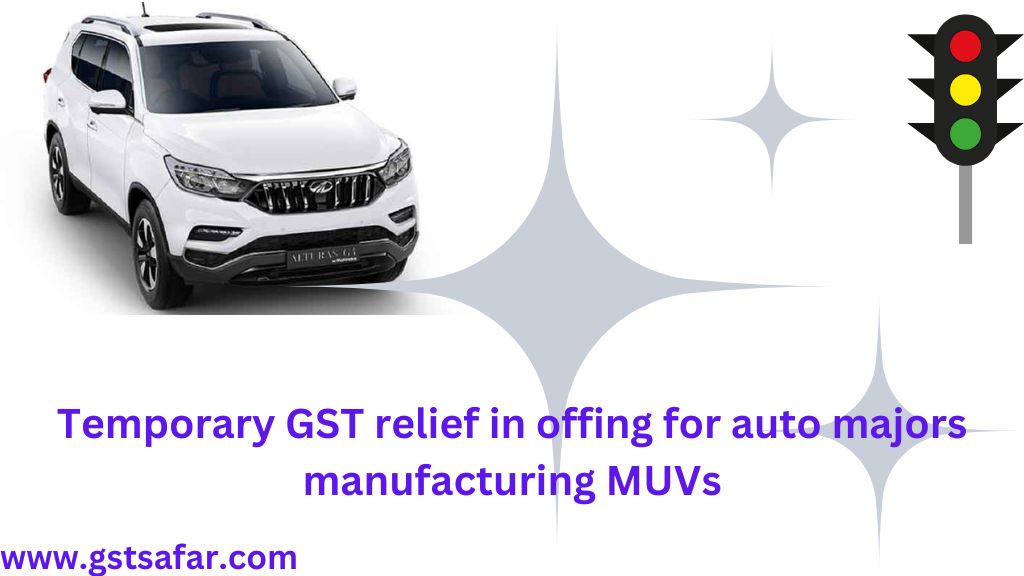The proposal to raise the rate of GST compensation cess applicable to MUVs, at par with SUVs falling under the same criteria of car length, engine capacity, among others, is likely to be deferred at the upcoming GST Council meeting, scheduled to take place on February 18. This will provide auto manufacturers with a temporary reprieve.
The GST Council-nominated fitment committee reportedly defers the plan to treat MUVs on a par with SUVs until the committee has a thorough conversation with industry stakeholders, according to sources who did not want to be named.
According to the same sources, the GST Council appointed Fitment committee, which reviewed the matter using examples of crossover utility vehicles including Toyota Innova, Kia Carnival, Isuzu V-cross, and Hi-Lander, among others, to take into account Harayana’s desire for equal treatment.
According to sources, “Fitness committee after lengthy talks agreed that the problem still requires more clarification and that it can only be done after detailed research in cooperation with all parties.” During the discussion at the 48th GST Council meeting, states including Haryana cited that there is a clear case of tax evasion by auto players amid ambiguity between many car models that aren’t called SUVs but fall under the same specifications, as described under the GST law for treatment of SUVs. The proposal was brought up after the industry requested clarification from the government regarding the applicability of cess rates on SUVs.
Following this, on the request of the states, Union Finance Minister and GST Council Chairman Nirmala Sitharaman led the Fitment committee to look into the suggestion put out by the states.
Following this, the fitment committee discussed a proposal that would treat MUVs equally to SUVs, even when they weren’t commonly referred to as such. Currently, all SUVs and motor vehicles with a length of more than 4,000 mm, a ground clearance of at least 170 mm, and an engine size of more than 1500 cc must pay a compensation cess of 22%.









